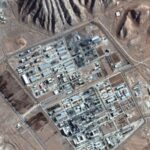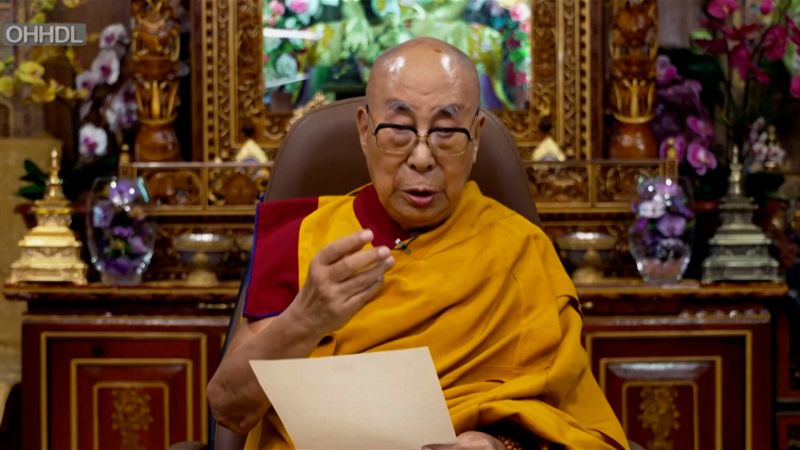The Dalai Lama has announced his intention to reincarnate after his death, continuing a centuries-old tradition that has become a focal point in the ongoing struggle between Tibet and China’s Communist Party. In a statement made ahead of his 90th birthday, the spiritual leader emphasized that his office holds the “sole authority” to recognize his future reincarnation. This declaration sets the stage for a potential clash over his succession, as Beijing asserts its own claim of authority over the process.
This announcement comes at a critical time, as the question of the Dalai Lama’s succession has long been a contentious issue between Tibetans and the Chinese government. The Dalai Lama’s role as both a spiritual and political leader makes his reincarnation a matter of significant geopolitical importance. The Chinese government has historically sought to exert control over Tibet, and the selection of the next Dalai Lama could influence the region’s future stability and autonomy.
The Historical Context of Reincarnation
The tradition of reincarnation in Tibetan Buddhism is deeply rooted in the region’s history. The Dalai Lamas are believed to be the manifestations of Avalokiteshvara, the Bodhisattva of Compassion, and have been central figures in Tibetan society for over six centuries. The current Dalai Lama, Tenzin Gyatso, was identified as the 14th reincarnation at the age of two.
Historically, the process of recognizing a reincarnated Dalai Lama involves rigorous spiritual and cultural rituals, often including the identification of a young child who exhibits signs of the previous Dalai Lama’s spirit. This process has traditionally been managed by senior monks and spiritual leaders within the Tibetan Buddhist community.
China’s Involvement and Claims
Meanwhile, China’s involvement in the reincarnation process is part of a broader strategy to integrate Tibet more fully into the Chinese state. Beijing has claimed the right to approve the next Dalai Lama, arguing that the central government has historically overseen religious matters in Tibet.
According to Chinese officials, the selection of the next Dalai Lama should align with the country’s broader political objectives. This stance has been met with resistance from the Tibetan community, which views Beijing’s claims as an infringement on their religious and cultural autonomy.
Expert Opinions and Reactions
Experts on Tibetan affairs have expressed concern over the implications of this power struggle. Dr. Lobsang Sangay, a prominent Tibetan scholar, argues that the Dalai Lama’s announcement is a strategic move to preempt Chinese interference. “The Dalai Lama’s declaration reaffirms the Tibetan people’s right to self-determination and religious freedom,” he stated.
On the other hand, Chinese authorities have dismissed the Dalai Lama’s claims, emphasizing their historical role in Tibetan affairs. “The reincarnation of the Dalai Lama is not just a religious matter but a political one,” said a spokesperson from the Chinese Foreign Ministry.
Implications for Tibet’s Future
The move represents a significant moment in the ongoing struggle for Tibet’s future. The selection of the next Dalai Lama could either reinforce Tibetan cultural identity or further entrench Chinese influence in the region. The outcome of this succession battle will likely have profound implications for the region’s political landscape.
As the Dalai Lama approaches his 90th birthday, the question of his successor looms large. The international community will be watching closely, as the decision could impact not only Tibet but also China’s relations with other nations concerned about human rights and religious freedoms.
The Dalai Lama’s announcement underscores the complex interplay between religion and politics in Tibet. As both sides prepare for a potential showdown over his succession, the world waits to see how this ancient tradition will unfold in the modern geopolitical arena.
 Alabama vs. Eastern Illinois: A Preview of the 2025 Showdown
Alabama vs. Eastern Illinois: A Preview of the 2025 Showdown Jalen Ramsey to Wear No. 5 with Steelers, Sparking Jersey Number Talks
Jalen Ramsey to Wear No. 5 with Steelers, Sparking Jersey Number Talks Missouri Tigers Face Oklahoma Sooners in Pivotal 2025 Football Matchup
Missouri Tigers Face Oklahoma Sooners in Pivotal 2025 Football Matchup Iran Suspends Cooperation with UN Nuclear Agency Amid Rising Tensions
Iran Suspends Cooperation with UN Nuclear Agency Amid Rising Tensions Drury University Athletes Shine as GLVC Scholar-Athletes of the Year
Drury University Athletes Shine as GLVC Scholar-Athletes of the Year